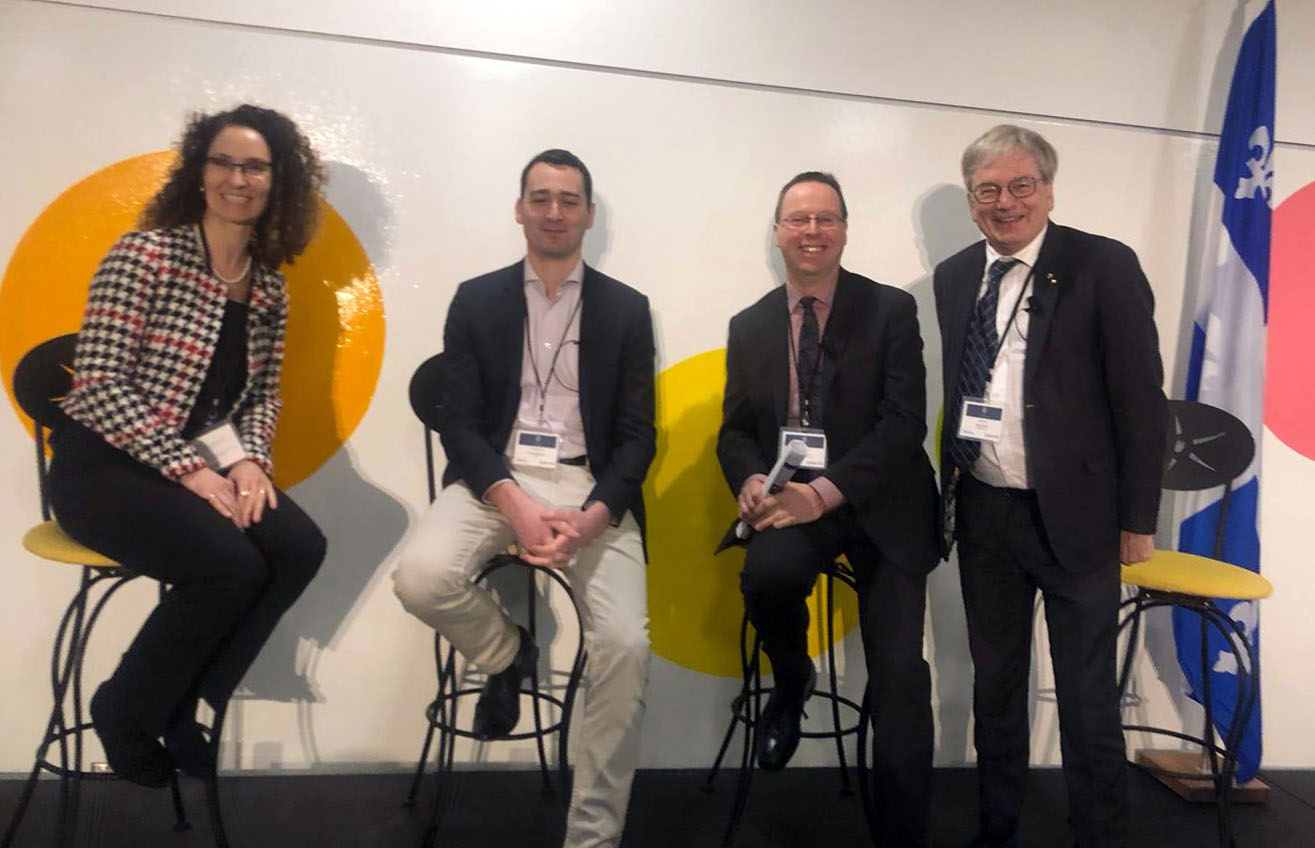© 2025 CIRANO. All rights reserved.
06 February 2020
Catherine Beaudry and Nathalie de Marcellis-Warin participated in the one-day event devoted to the Government of Québec's Innovation Zones project

On January 29, Catherine Beaudry, Main Researcher of the theme Innovation and Digital Transformation at CIRANO, and Nathalie de Marcellis-Warin, President and Chief Executive Officer of CIRANO, Main Researcher of the theme Innovation and Digital Transformation and co-responsible of the CIRANO Pole on the Socio-economic Impacts of Digital Innovation and AI, both Full Professors at Polytechnique Montréal, participated in the day devoted to the Québec government's Innovation Zones project, in the presence of Pierre Fitzgibbon, Minister of the Economy and Innovation, and Jean-François Roberge, Québec Minister of Education and Higher Education, and their teams.
Rémi Quirion, Chief Scientist of Quebec, moderated a panel on models of collaboration in innovation with Catherine Beaudry, Éric Fournier (Defence Research and Development Canada) and Clément Bourgogne (ai scale).
A great day of exchanges with, also, Janice Bailey (Fonds de Recherche du Québec en Nature et Technologies), Gilles Savard (IVADO), Luc Sirois (Prompt), Philippe A. Tanguy (Polytechnique Montréal and CIRANO), Guy Breton (Université de Montréal), Sophie D'Amours (Université Laval), Pascal Monette (ADRIQ-RCTi), Kathy Malas (Centre hospitalier de l'Université de Montréal), Carl-Eric Aubin (Institut TransMedTech), Benoit Balmana (IVÉO), Isabelle Foisy (QuébecInnove), Denis Leclerc (Écotech Québec), Innovitech, Vestechpro, the Centre de recherche industrielle du Québec, the Consortium for Research and Innovation in Aerospace in Québec (CRIAQ), Thales as well as many other organizations and representatives of municipalities.
The creation of world-class innovation zones aims to increase the commercialization of innovations, exports, local and foreign investment and business productivity. The innovation zones will attract talent, entrepreneurs, major prime contractors and researchers from Quebec and elsewhere to specific geographic areas. Various socioeconomic players will be involved, for example: businesses, economic organizations, research and educational institutions and municipalities. They will collaborate on innovation projects in promising technology sectors in which Québec has significant comparative advantages. Video presentation of Zones d'innovation Québec